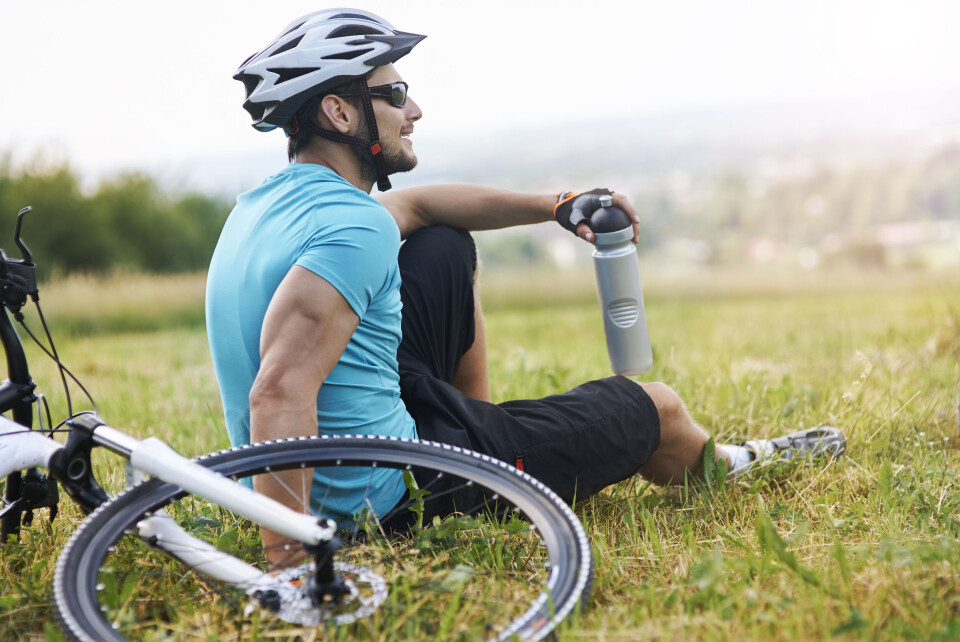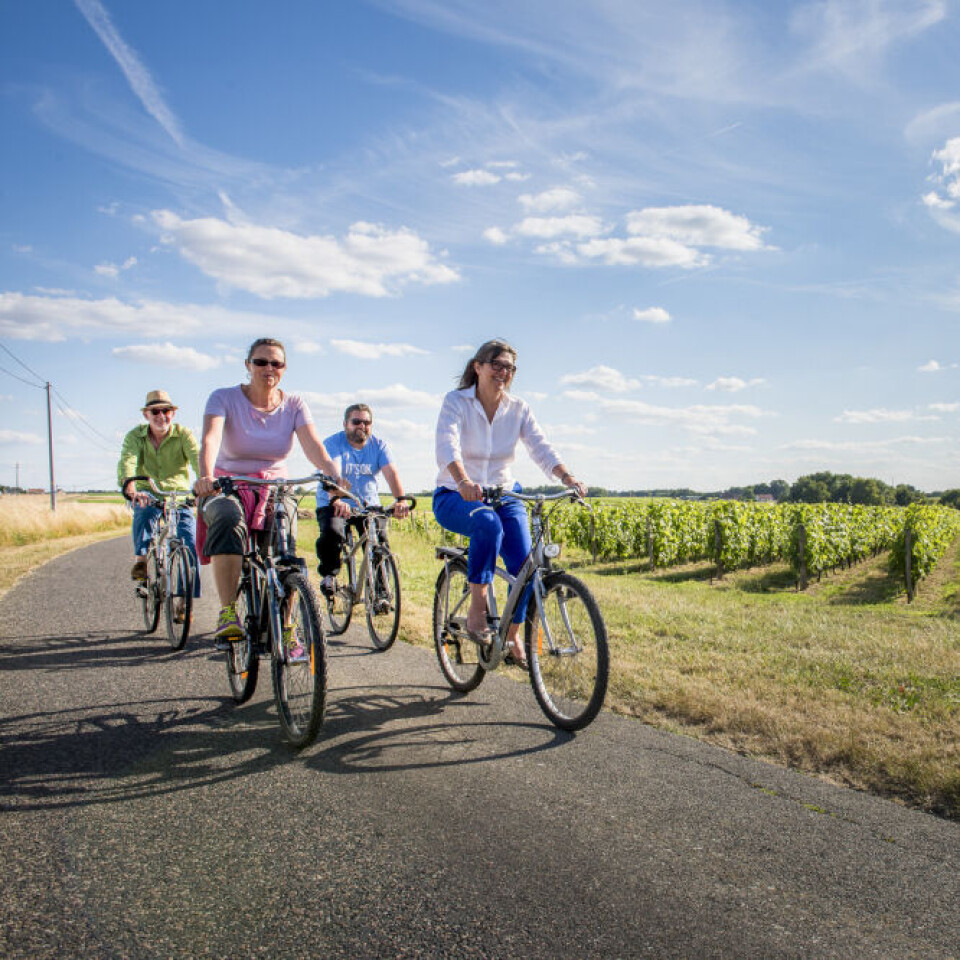-
Drivers, cyclists and pedestrians warned of major road change in Nice
Court rules that widely used one-way seafront road must become two-way
-
Tour de France 2026 route revealed - does it pass near you?
Both the men’s and women’s races will begin outside of France
-
Electric bike success in Toulouse
The city has extended its self-service network to surrounding areas
Cycling in France: Bike festivals and where to cycle this summer
You can get involved with the cycle hype by visiting one of France's many bike festivals

France as a country is famed for its love of cycling, playing host to the world's biggest cycle race every year.
But it's not just a sport for professional athletes in France, and there are plenty of options if you don't fancy slogging up the winding roads of the Alps.
Summer is the perfect time to dip your toe into the French cycling scene, whether you are approaching it fresh faced or as a seasoned bike trekker.
Bike festivals are a great way to do this, where you can buy new equipment, listen to talks and get advice on riding and general bike maintenance.
Cycling festivals
If you like the idea of cycling but do not know where to start, a festival could be the answer.
Ten thousand visitors are expected at Vélo Vélos, the Festival du Vélo in Nantes (April 20-21, 2024).
As well as showcasing all the latest developments, there will be a market, talks, interviews, competitions, demonstrations, and chances to try out new bikes.
Entrance will be free.
Read also: French cycling: France's historical passion for the bicycle
Reflecting the sign of the times, Lyon is holding its first ever Vélo Festival over the weekend of September 2-3, 2023, with vélo pour tous on Saturday (tandems, quad bikes, handisports workshops (for cycling with a disability), vélo cargo (cargo bike), and electric bikes.
Sunday will host a market where you can try and buy, a recycling point to leave old bikes and accessories, plus a women’s bike ride to raise money for cancer charities.
Vélo Passion in Avignon on October 27-29, 2023, will include leisure, sport, tourism, competitions and vélotaf. Forty thousand square metres of exhibition space will encompass demos, sales and even vélo polo – yes, a polo match played on bicycles.
BMX 2022 world champion Sylvain André will be there too.
Corsica is hosting a cycling festival this autumn from 27-29 October, for VTT (mountain bike) lovers.
The island has 220km of dedicated bike trails, and this year the French VTT World Cup will be held during the festival, with nearly 400 riders expected to take part.
This is your chance to have a go, learn more about cycling sports, and meet the pros.
The Loire Bike and Troc Festival on July 9-10, 2023, will have a slightly different, more laid-back vibe.
It will be at Montbrison on Friday, and Chalmazel-Jeansagnière on Saturday.
There will be a second-hand bike market, and cycle rides for everyone, even for 2-6 years olds in the shape of a trail to be ridden on draisiennes no less.
Afternoon demonstrations and free concerts will make this a convivial affair ideal for families.
If you love cycling as a spectator sport, however, the Cyclist Film Festival is for you.
For two hours, a collection of amazing short films about cycling will be shown in 20 different French cities this summer.
Find tickets and details of dates from the cyclistfilmfestival.fr website.
Cycling routes

When it comes to finding good places for ordinary souls to enjoy pedalling along with no stress, the paths around Lake Annecy take some beating.
They are mostly on the water’s edge, making it easy to stop for a swim or a picnic.
Leave Annecy heading south on the west side of the lake, and you will find you can reach as far as Talloires on the east side of the lake before being confronted with the incredibly steep Roc-de-Chère, which only the super fit would dream of approaching on a bicycle.
You can either put the bikes on a boat from Talloires to Annecy Town (check timetables before leaving Annecy) or simply turn around and go back the way you came.
Read also: Tour de France, Race for Madmen
Another place perfect for leisurely pedalling is the Île de Ré, which is almost totally flat and surrounded by inviting beaches.
It is also blessed with beach bars and shacks selling fresh oysters should you need refuelling at any point.
There are 110km of cycle paths on the island and four information points, at Sablanceaux–Rivedoux-Plage, Gros Jonc– Le Bois-Plage-en-Ré, Le Martray–Ars-en-Ré, and La Maison du Fier–Les Portesen-Ré.
A handy shuttle service will transport you and your bike from one information point to another for €1 per person, per trip.
The Canal du Midi in the south is also great for cyclists, as the paths are flat and mostly quite shady.
There are loads of cafés and bars along the way. If you start at Carcassonne, it will take around four days, depending how many historical villages you explore, to reach the Mediterranean at Sète.
If you are astonishingly fit and slightly mad, you could always attack the Col de Tourmalet in the central Pyrenees.
This is where in 1910, when the first Tour de France rider reached the top of the hill, he yelled at the organisers, “You’re assassins! Yes, assassins!”
At the steepest point the incline is more than 10%, and the average over the 19km route is 7.39%.
And if that ride fails to kill you, you can then attack the ‘Circle of Death’ by cycling from the Col de Peyresourde to the Col d’Aubisque, just an extra 141km.
In the summer, once the ski lifts grind to a halt, the steepest Alpine mountainsides are taken over by cyclists.
Again, these are not pedal paths for beginners. They are incredibly difficult and challenging.
The Col de la Loze in the Trois Vallées offers four different cycle routes, but the main route up to the top involves a gruelling 7km climb, sometimes at a gradient of 23%, from an altitude of 1,673m at the start to 2,304m at the end.
There are cycle routes all over France, and maps are available at francevelotourisme.com.
You can search for routes by length or difficulty.
One of the newest véloroutes to be completed is the Voie Bleue, running 700km from Apach on the border of Luxembourg all the way south to Lyon.
It passes through the beautiful towns and cities of Thionville, Metz, Nancy, Ray-sur-Saône, Auxonne, Tournus, Villefranche-sur-Saône, and Trévoux, before finally reaching Lyon.
The route takes cyclists along the Moselle valley, the Canal des Vosges, and the banks of the Saône, until it reaches the confluence with the Rhône.
The entire route is signposted and off-road.
There are no hills.
Related articles
Briton cycles 1951 Tour de France route for charity in father’s memory
Old electric French post office bikes get ‘up-cycled’ for resale
Key points from France’s new €2billion plan to encourage cycling
























